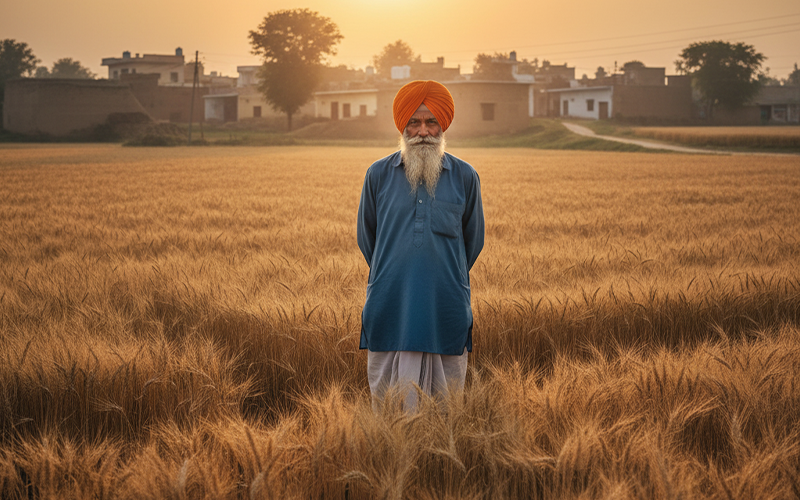LUDHIANA – Punjab Agricultural University (PAU) has once again stamped its excellence on the national map with the identification of two high-yielding wheat varieties, PBW 915 and PBW 906, for release at the national level. The development of these PAU new wheat varieties is a significant step towards enhancing India’s food security and farm productivity.
The announcement came during the 64th All India Wheat and Barley Research Workers Meet in Gwalior, where the Varietal Identification Committee (VIC) of the ICAR recognized PAU’s contributions to sustainable crop development. The new varieties, rigorously tested over three years, promise enhanced productivity and strong disease resistance for farmers across diverse agro-climatic regions.
PBW 915 is particularly suited for timely irrigation areas in the North eastern plains zone, including states like Bihar, eastern Uttar Pradesh, Jharkhand, Odisha, West Bengal, and Assam. This variety showed an impressive average yield of 52.5 quintal per hectare and proved to be resistant to yellow and brown rust, two of the most significant wheat diseases.
The second variety, PBW 906, is recommended for early sowing under high-input farming in the central zone, which covers states like Madhya Pradesh, Chhattisgarh, Gujarat, and parts of Rajasthan. This variety delivered an average yield of 67.4 quintal per hectare and is resistant to brown rust.
PAU Vice-Chancellor Dr Satbir Singh Gosal said, “These varieties are expected to benefit farmers with better yields and disease resistance, contributing to food security and improved farm income.” The recognition places PAU at the top among all state agricultural universities in the country.


